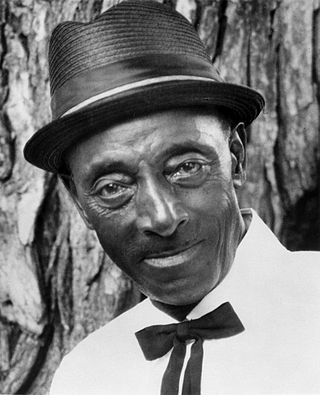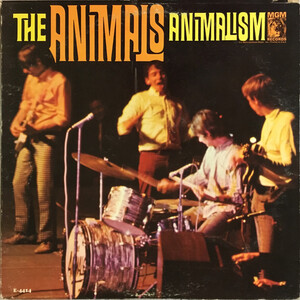
John Benson Sebastian (born March 17, 1944) is an American singer, songwriter and musician who founded the rock band the Lovin' Spoonful in 1964 with Zal Yanovsky. During his time in the Lovin Spoonful, John would write and sing some of the band's biggest hits such as "Do You Believe in Magic", "Did You Ever Have to Make Up Your Mind", and "Daydream". Sebastian would leave the Spoonful in 1968 after the album Everything Playing. After leaving the Spoonful, Sebastian would focus on a solo career, releasing his first solo album in 1970 titled John B. Sebastian. Sebastian would continue on recording solo albums.

Fred McDowell, known by his stage name Mississippi Fred McDowell, was an American singer-songwriter and guitarist of hill country blues music.

Booker T. Washington "Bukka" White was an American Delta blues guitarist and singer. His first full-length biography, The Life and Music of Booker "Bukka" White: Recalling the Blues (2024), has been published by the University Press of Mississippi.

Bonnie Raitt is the debut album by Bonnie Raitt, released in 1971.

Frederick G. Seibert is an American television producer and media proprietor.

Animalism is the fifth American album by the Animals, released in November 1966. The album includes the band's usual repertoire of blues and R&B covers, while Frank Zappa contributed a song and played bass on two tracks. It was the last album recorded by the original incarnation of the Animals prior to their disbandment, after which singer Eric Burdon would assemble a mostly new lineup under the name "Eric Burdon and the Animals". This new version of the group was already touring when Animalism released.

The Complete Blue Horizon Sessions 1967–1969 is a boxed set by British blues rock band Fleetwood Mac, released in 1999. It is a six-CD compilation of previously released material, plus outtakes and unreleased tracks from the band's early line-up, coming in a longbox with individually boxed CDs and a booklet of extensive notes and anecdotes, written by the record's producer Mike Vernon. It represents the entire recorded output of Fleetwood Mac while they were signed to the Blue Horizon label.

Meet the Supremes is the debut studio album by The Supremes, released in late 1962 on Motown.
"To Ramona" is a song by American singer-songwriter Bob Dylan, first released on his fourth studio album, Another Side of Bob Dylan (1964). The song was written by Dylan, and produced by Tom Wilson. The lyrics were started at the May Fair Hotel in London in May 1964, and finished during a week-long stay in the Greek village of Vernilya later that month. Dylan recorded all the tracks for the album, including the song, in a single three-hour session on June 9, 1964, at Studio A, Columbia Recording Studios, New York. Its narrator advises Ramona, who is preparing to return to "the South", not to follow the advice of others. Critics have suggested several different people as inspirations for the song, including Joan Baez, Suze Rotolo, and Sara Lownds.

"Trouble No More" is an upbeat blues song first recorded by Muddy Waters in 1955. It is a variation on "Someday Baby Blues", recorded by Sleepy John Estes in 1935. The Allman Brothers Band recorded both studio and live versions of the song in the late 1960s and 1970s.
Alan Goodman is a media branding executive and one of the founders of health and wellness data management products company TESTD Inc. He was formerly a television writer and producer who has worked in media since 1981.
"You Gotta Move" is a traditional African-American spiritual song. Since the 1940s, the song has been recorded by a variety of gospel musicians, usually as "You Got to Move" or "You've Got to Move". It was later popularized with blues and blues rock secular adaptations by Mississippi Fred McDowell and the Rolling Stones.

"Worried Life Blues" is a blues standard and one of the most recorded blues songs of all time. Originally recorded by Big Maceo Merriweather in 1941, "Worried Life Blues" was an early blues hit and Maceo's most recognized song. The song was inspired by an earlier track and several artists have had record chart successes with their interpretations of the song.
George Mitchell is an American record producer and music historian.
Johnny Woods was an American blues singer and harmonica player in the north Mississippi hill country blues style.
Thomas Anthony Pomposello was an American roots musician, notable for playing and recording with country blues musician Mississippi Fred McDowell. He was also a cable television and advertising producer for clients like MTV Networks, and produced idents for the cable channels Nickelodeon and MTV, and for Nickelodeon's late-night programming block Nick at Nite. He died in a car accident outside of Kingston, New York in January 1999.

Oblivion Records is an independent American record label that focuses on under recorded blues and jazz musicians. The company was originally based in Huntington, New York and the WKCR-FM studios at Columbia University in New York City, with a post office box in Roslyn Heights, New York from 1972–1976. It now operates out of Los Angeles. After almost 50 years, Oblivion announced a new release in November 2021.

Blues from the Apple, released in 1974 by Oblivion Records, is the only album under the leadership of guitarist and vocalist Charles Walker. Featured players include New York City based musicians Lee Roy Little, Bill Dicey (harmonica), 'Foxy' Ann Yancey, Larry Johnson (harmonica), Tom Pomposello, Bobby King, and Ola Mae Dixon (drums), among others.

"Shake 'Em On Down" is a Delta blues song by American musician Bukka White. He recorded it in Chicago in September 1937, two months before being incarcerated at the infamous Parchman Prison Farm in Mississippi.

Dave's Picks Volume 10 is a three-CD live album by the rock band the Grateful Dead. It contains the complete concert recorded on December 12, 1969, at the Thelma music venue in Los Angeles, California. It was produced as a limited edition of 14,000 numbered copies, and was released on May 1, 2014.














